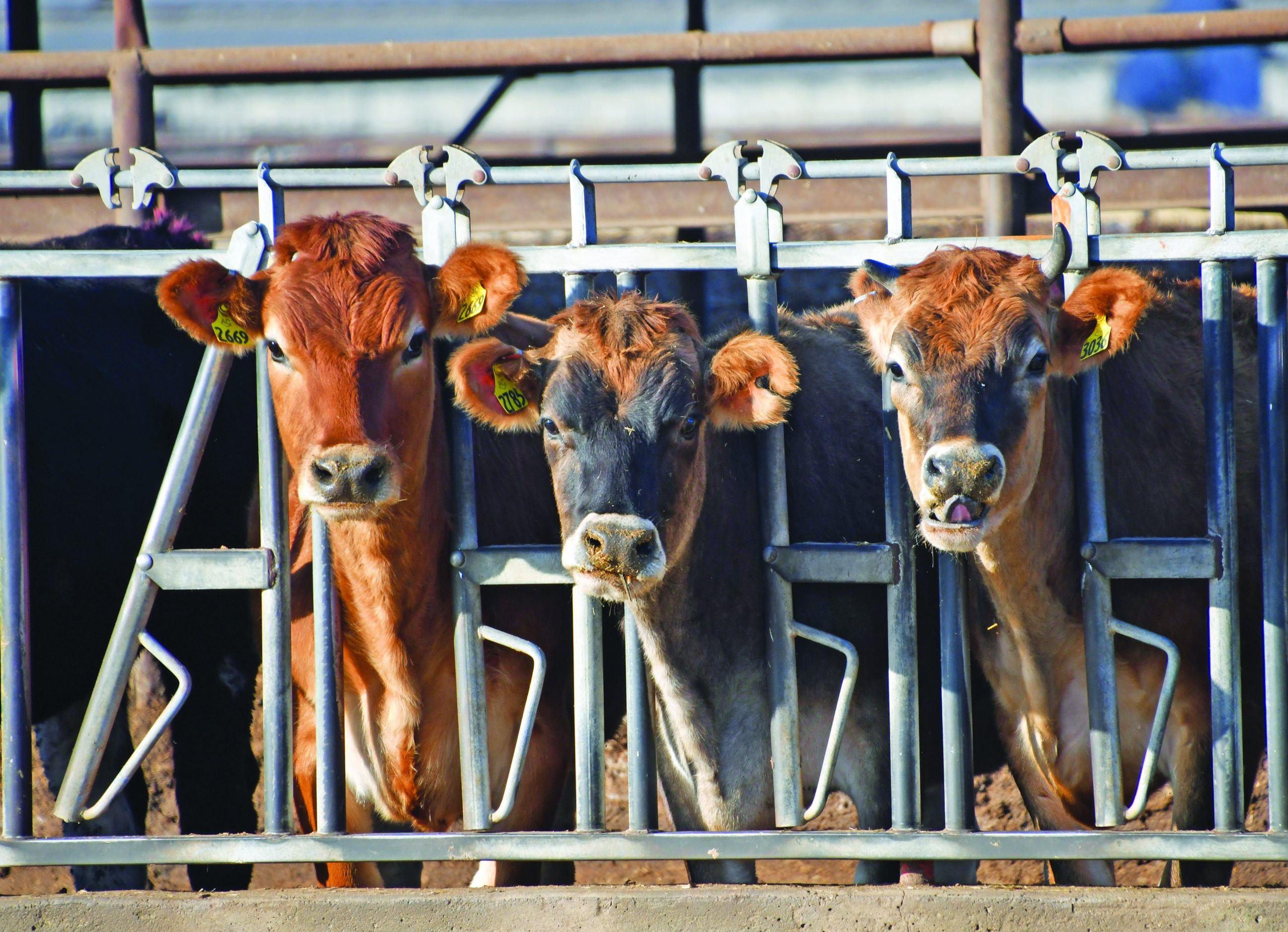By Vicky Boyd
Efforts to qualify a Sonoma County ballot measure that would ban confined animal operations have prompted several agricultural groups, including the San Joaquin Farm Bureau, to join the offensive.
Fearing similar animal rights movements could spread elsewhere, they have contributed financially to the battle. In addition to SJFB, the California Farm Bureau, Western United Dairies, Pacific Egg & Poultry Association and California Grain & Feed Association have stepped up to help Sonoma County farmers. The groups hope to raise $1.6 million, which is what they say will be needed to defeat the ballot measure.
“It will take support from all sectors of agriculture to combat this local initiative that, if passed, will threaten animal agriculture here and beyond,” Sonoma County Farm Bureau Executive Director Dayna Ghirardelli said in a letter to ag industry supporters. “We have been working with industry partners from Sonoma County and across the state and country preparing for a long battle. However, we know that even after this ballot measure is no longer an immediate concern, there will be continued efforts to achieve their goal, and we as an industry are stronger together.”
SJFB Second Vice President James Chinchiolo said board members at their monthly meeting were clear in their desire to help Sonoma County keep the animal activists at bay. They voted to initially contribute $5,000.
“My concern is these entities will grow and become more and more influential over time and will start to infiltrate deeper and deeper into ag,” said Chinchiolo, who grows cherries and walnuts near Lodi and Linden. “We need to put this little flame out before it becomes a forest fire. We need to push it back down to an ember rather than a flame.”
If the Sonoma County measure passes, it would set a precedent as the first in the state to ban concentrated feeding operations or CAFOs. Passage also would empower the activist groups to expand their efforts, Ghirardelli said in an email.
“This is merely a stepping stone to a greater effort to eliminate animal agriculture in its entirety,” she said. “If they can accomplish this in Sonoma County, it will give them momentum to expand this effort to other counties and most likely the state.”
Activists had previously sought a factory farm moratorium statewide through Assembly Bill 2764 in 2022, but the proposed legislation never reached a vote.
And San Joaquin County agriculture has a lot to potentially lose should anti-CAFO initiatives spread. Milk, eggs and chickens, and cattle and calves were among the county’s Top 10 crops in terms of farmgate value in 2022, according to the agricultural commissioner’s report.
Although a few counties removed from the coast, San Joaquin County livestock producers have been targets of the same animal rights groups, said SJFB Executive Director Andrew Genasci. In the past, the groups have tried to disrupt normal farming operations by protesting, trespassing and even stealing animals they claimed needed rescuing.
Measure would end family livestock farms
The Berkeley-based Coalition to End Factory Farming, composed of at least two animal rights groups, is working to collect 19,746 verified signatures of Sonoma County registered voters by March 5 to qualify the measure for the November ballot.
Ghirardelli said she believed Sonoma County was targeted because of its proximity to Berkeley and its agricultural prominence. They’ve also seen community demographics change as Bay Area urbanites move to Sonoma County.
“While the beauty and quality of life in Sonoma County are welcoming, new residents and the younger generation are not as connected to the fabric of our county. So, the proponents see this as an opportunity to prey on emotions through misinformation and scare tactics,” Ghirardelli said.
The spread of misinformation was apparent as signature gatherers stood outside Sonoma County grocery stores and claimed the ballot measure would “ban factory farms” in America. While they also said it would not affect family farms, just the opposite is true, Ghirardelli said. Sonoma County is made up almost exclusively of family farms, many of which fall within the classification outlined in the measure, she said.
The ballot proposal would eliminate the Environmental Protection Agency’s definition of CAFO. Instead, the groups define a CAFO as an operation where animals are held for 45 days or more during a 12-month period in a lot or facility where forage or crops are not maintained during the normal growing season.
If passed by voters, the measure would essentially shutter all of Sonoma County’s poultry operations, 98% of county dairies, a number of horse facilities, and potentially some goat and sheep operations, according to Sonoma County Farm Bureau information.
It would phase out existing CAFOs over three years and prohibit any new ones. The county ag commissioner would be responsible for verifying the phase-outs.
Violators could be subject to fines beginning at $1,000 for the first offense ranging up to $10,000 for the third and subsequent one.
In addition, the ballot measure would require the county to provide retraining and employment assistance to displaced CAFO workers during the phase-out and for an additional year afterward.
“The negative economic ramifications to the county’s agricultural industry would be extensive and add additional stress to the county’s staff and budget with the other requirements,” Ghirardelli said.
Where to contribute
If you want to support Sonoma County’s effort, individual checks should be made payable to Sonoma County Family Farmers Alliance (1463484), 5445 Madison Ave., Sacramento, CA 95841. Contributions or gifts to Sonoma County Family Farmers Alliance are not tax deductible. Contributions by check may be for any amount, but the law forbids cash contributions of $100 or more.



